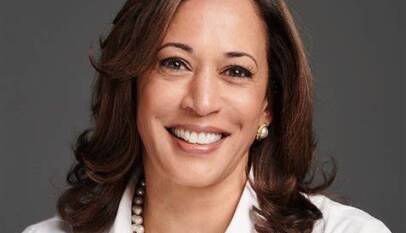By Austin Manekator
In just a few days, Americans will head to the polls in an election with profound consequences that could break centuries-old barriers. On November 5th, Vice President Kamala Harris, the Democratic nominee, will face former President Donald Trump, the Republican candidate, in a contest that transcends a mere choice between candidates.
With President Biden stepping aside earlier this year, Harris has emerged as the Democratic frontrunner, poised to make history as the nation’s first female president.
To understand this moment, we must recall that American women were denied the right to vote only 100 years ago. The 19th Amendment, ratified in 1920 after decades of suffragist struggle, formally granted women voting rights.
However, this victory was not universal—discriminatory practices prevented many women of colour from casting ballots for decades, with meaningful inclusion achieved only through the Voting Rights Act of 1965. In light of this history, Harris’s candidacy represents far more than an individual achievement; it symbolises progress towards the inclusive nation envisioned by those who fought for voting rights for all.
Kamala Harris’s political journey has been marked by an impressive number of “firsts.” She broke barriers in 2020 as the first female vice president and the first person of Black and South Asian heritage to hold that office. Her ascension marked a milestone for both women and communities of colour, bringing fresh perspectives to the highest levels of government. As a graduate of Howard University, one of America’s historically Black colleges, and a member of the historic Alpha Kappa Alpha sorority, Harris’s personal identity reflects the experiences of many Americans whose voices have been underrepresented in politics.
However, Harris’s candidacy is not merely symbolic. She has articulated a clear vision on critical issues affecting women, particularly regarding their autonomy over their bodies. At a time when reproductive rights are increasingly under threat, Harris has emphasised her belief that women should have the authority to make their own medical decisions, free from government interference. Her message is unequivocal: bodily autonomy is a matter of human rights. This stance resonates with millions of Americans who are concerned about the erosion of protections that past generations fought to secure.
Harris’s opponent, former President Donald Trump, represents a starkly different path forward. His base remains as energised as it was during his time in office, reflecting the deep divisions that characterise this election. If Harris prevails, her victory would not only signify the election of America’s first female president but also signal a commitment to an inclusive, progressive future—one that honours diversity and advances the hard-won rights of all citizens. Conversely, a Trump victory would suggest a continuation of the status quo, with policies and rhetoric that some view as regressive, particularly concerning women’s rights and equality.
For those of us who have witnessed American elections over the last three decades, this moment feels both inevitable and momentous. The promise of democracy is tested when the people choose a leader who reflects their evolving values. Should Kamala Harris succeed, it will not only validate the strides made in gender equality but also affirm a vision of leadership that is responsive to the realities of modern America.
On November 5th, Americans have a unique opportunity to elect the country’s first female president – a woman who embodies the resilience, ambition, and diversity that define the best of the country. History does not hand out easy victories, but for those who fought to secure the right to vote and the right to choose, Harris’s campaign stands as a testament to what progress looks like.
This election is not simply about one candidate or one race; it is a defining moment for the future of democracy itself.































